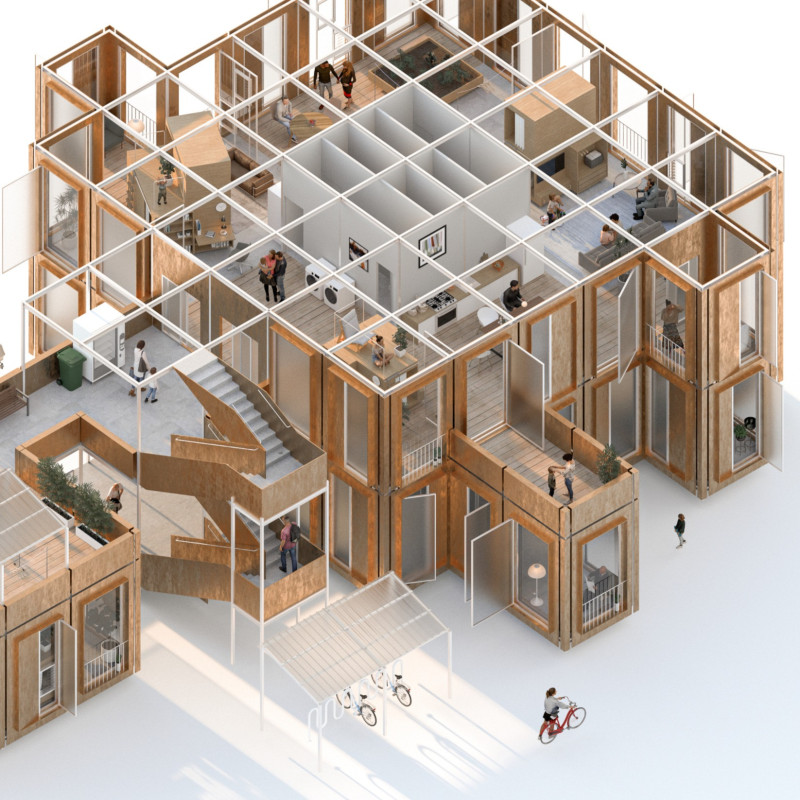5 key facts about this project
The design in Brunswick West, Melbourne, presents a modern approach to suburban living in response to current lifestyle changes. Influenced by the rise of remote work and the need for flexible living arrangements, the design prioritizes community while offering personal space. Shared infrastructure and co-owned areas aim to redefine the way individuals engage with their environments, moving away from traditional home ownership.
Open Infrastructure
A key feature is the open infrastructure that supports various spatial arrangements. Bedrooms are arranged within this system, utilizing small, connected elements that can be easily adjusted. Such a setup encourages residents to change the layout of their spaces without the need for significant renovations, promoting a sustainable lifestyle.
Capsule Bedrooms
The design highlights capsule bedrooms that focus on comfort and functionality. These rooms incorporate vinyl cloth concertina doors and slideable glass windows, enhancing the user experience. The flexibility of these features allows residents to create their own sense of privacy while still being part of a community.
Co-Living Spaces
Co-living spaces play an important role in the design, fostering interaction among residents. By creating a setting that naturally invites social engagement, the layout remains welcoming. Future additions to the project are planned to increase private areas, allowing residents to find a balance between community interaction and personal time. A residency form enables individuals to choose their bedrooms and add personal touches through selected plug-ins, enhancing their living experience.
Empowerment through Design
The structure empowers residents by encouraging involvement in community decisions. This participation strengthens the connection among neighbors and enriches the collective atmosphere. The overall design emphasizes a balance between shared areas and individual choices, reflecting modern needs for both community and autonomy.
Specialized window designs also contribute to comfort during hot summer nights, supporting a pleasant living environment. These thoughtful details enhance the experience within the community setting and encourage a harmonious lifestyle.






















































